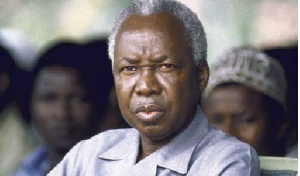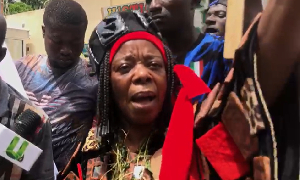Some time in the late 1980s, a headline appeared on the front page of the then ‘Weekly Spectator’ that announced in bold capitals: “ONLY 11 PASSED” It was the result of that year’s Association of Chartered Certified Accountants (ACCA) final examination for candidates who wanted to practise Accountancy. Against the resultant uproar and condemnations, the ACCA exam organisers came out with an explanation that was as simple as it was sweet: quality control. In my mind, “quality control” should override “right to legal education” as the guiding principle in the ongoing Law School admissions debate. The goal is simple: to sieve off chaff and avoid a future when some lawyers’ only qualification into the profession or claim to the right to wear the gown and wig would be their ability to pay for leaked exam papers.
I implore those embroiled in the debate to cast a sidelong view at the profession called journalism. Everybody is a journalist in this country. A priest who came upon big money, set up a printing press in the late 1980s and got a few journalists around him to start a newspaper. A few months later when I saw his complimentary (call) card, he had, “JOURNALIST”, in bold capitals, underneath his name indicating his profession or occupation.
Next time you meet an editor, ask what he considers his most stressful professional hazard. “Execrable grammar and spelling by staff”, they will tell you.
Another profession which Ghanaians have suddenly found attractive because, perhaps, the most lucrative, is politics. It is a profession whose only disqualification may be a candidate’s inability to lie or shout. Actually, politics has one qualification: the ability to steal and deny the act even when the hand is right inside the pot of gold.
In Ghana, this profession has, since 1992, become the surest way to fortune, power and a meteoric rise in social standing. Politics is the easiest means of acquiring a taxi, “tro-tro” or hairdryer. Just go to the Microfirance and Small Loans Centre (MASLOC) with a party card. The only misfortune is when the party loses the next election. The incoming Constituency Chairman will seize the car and have it towed to the police station with instruction to the officers to have the previous owner detained.
O, I failed to tell you. This is one of the few countries I know of in the world where police officers pee in their pants when the smallest fry from the (ruling) party’s constituency office shows up at the station. So why was anybody surprised that a Regional Minister could order the release of perpetrators of mayhem, a sub-profession wrongly labelled “vigilantism”!
What else would give a woman from the party office the impertinence to warn journalists for legitimately doing their job, ending it off with a threat to “change their sleeping place”. Thank you, His Excellency, the President, for the swift action in the case of the Regional Minister. Sends out the right signals.
I ask myself: Would there be such wanton display of lawlessness, a readiness to kill, steal ballot papers, risk otherwise valuable lives and cause destruction if the rewards were not so immoderate?
Take President Carter. Peanut farmer. Take Julius Nyerere. What did they want from politics apart from serving their nation? Take the Speaker of Parliament in America, Paul Ryan, second- in-line to the presidency. He sleeps in his office during the working week.
An American Member of Parliament (MP), Mike Quigley, who had been sleeping in his office for a second term, justifies the austerity: “Ten per cent of my constituents are jobless, 20 per cent lack health insurance, and 40 per cent of homeowners owe more on their mortgages than their houses are worth. They didn’t vote for me to be comfy (comfortable)”.
Indeed, an Agence France-Presse report says that for about 50 members of the United States (US) Congress, the office doubles as home — at least while they’re in the capital. One said, “if Congress is not prepared to show leadership, I think it undermines your ability to ask other people to sacrifice.”
Coming back to crookedness in politics, I must hasten to state here that selfish ambition, roguery and corruption are not made in Ghana. The United Kingdom parliamentary expenses scandal in 2009 comes to mind. (In the United Kingdom, MPs can claim expenses, including the cost of accommodation, if they can prove that the expense was "wholly, exclusively and necessarily incurred for the performance of a Member’s parliamentary duties").
But please, not this: The illegal claim scandal in the UK was successful because of the existence of the Right to Information law. The authorities were compelled, by law, to make the disclosures. Note again: the scandal resulted in a large number of resignations. Some were sacked, others retired prematurely, and all of them were made to pay back. The Speaker of Parliament resigned after he was pressured to step down for approving the questionable claims. Many were prosecuted and sentenced to terms of imprisonment.
And the beauty of it! Gordon Brown, the then Prime Minister, apologised "on behalf of all politicians" for the expenses claims. The Leader of the Opposition, David Cameron, urged that all MPs should apologise to the people who had voted for them.
Who would kill or steal ballot papers to elect an MP who him/herself is not going to be the most powerful person in the land?
Opinions of Friday, 16 February 2018
Columnist: Enimil Ashon















